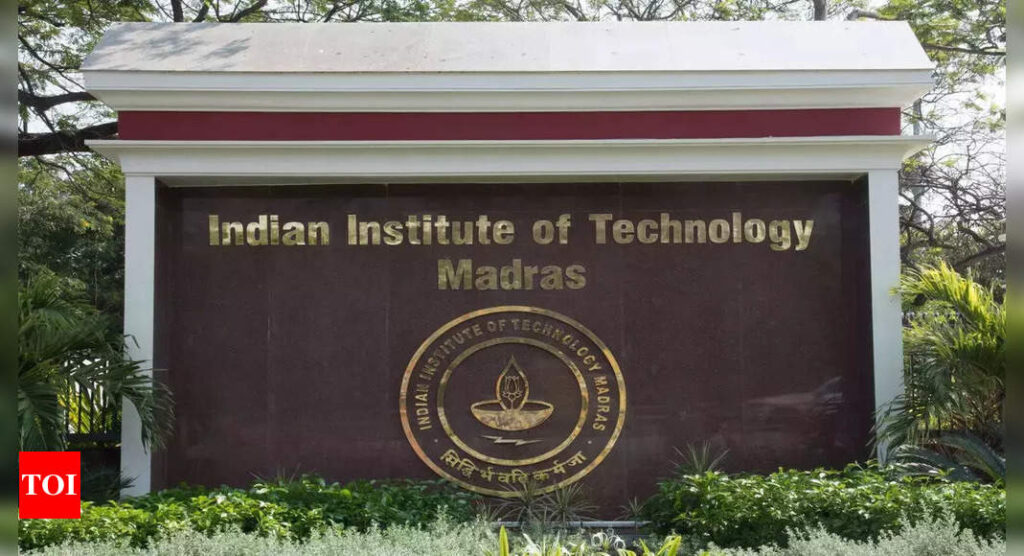[ad_1]
IIT Madras is leading the charge in making digital education accessible to all by developing courses in multiple Indian languages. This initiative, aligned with the government’s Bhashini mission, aims to eliminate language barriers and ensure inclusivity in the digital age.
What is Bhashini
Bhashini is an initiative from the the Ministry of Electronics and Information Technology.Bhashini aims to build a national public digital platform for languages to develop services and products for citizens, usingartificial intelligence and other emerging technologies.
Prof. V. Kamakoti, Director of IIT-Madras, emphasizes the importance of breaking down language barriers in the digital era. He highlights that despite significant advancements in digitalization, language can still be a major hurdle for many. Accessibility is not just about providing access to technology, but also ensuring seamless communication and content availability in various languages.
To address this challenge, IIT-Madras is piloting the Bhashini platform, a large language model (LLM) capable of translating content and facilitating communication across diverse languages. This initiative aims to provide students with access to around 10-15 courses in 12 Indian languages within the current financial year. The long-term goal is to expand the platform to include more courses and languages, eventually enabling seamless communication between individuals who do not share a common language.
What is BharatGPT
Furthermore, Prof. Kamakoti emphasizes the need for critical public services and infrastructure to be available in all official languages. He envisions a “BharatGPT,” an LLM specifically designed for India, which would facilitate language translation and empower citizens to interact with government agencies and access public services in their preferred language. “We need BharatGPT-like services for working with public services like Department of Administrative Reforms and Public Grievances, which is a public digital infrastructure given to the people for recording their grievances. They must be able to record in any language of their choice. The person addressing the grievance can take it in any language of her/his choice and give back a response and act,” he said.
Petitioners or respondents need not be conversant in English but should be comfortable in presenting their case in their mother tongue or a language of their choice, he said, adding that the BharatGPT-type of translation model would help a lot with that.
IIT-Madras is also working on making the legal system more linguistically inclusive. Their efforts aim to improve access to justice by enabling petitioners and respondents to participate in proceedings using their mother tongue. BharatGPT-type translation models would play a crucial role in this endeavor by bridging the language gap and facilitating communication between legal professionals and individuals seeking legal assistance.
The institute’s collaboration with the Supreme Court, formalized through an MoU signed in October 2023, further strengthens their commitment to leveraging AI technologies for the public good. This partnership focuses on developing innovative solutions for transcription, translation, summarization, court proceedings streaming, and process automation, ultimately aiming to enhance the efficiency and accessibility of the judicial system.
What is Bhashini
Bhashini is an initiative from the the Ministry of Electronics and Information Technology.Bhashini aims to build a national public digital platform for languages to develop services and products for citizens, usingartificial intelligence and other emerging technologies.
Prof. V. Kamakoti, Director of IIT-Madras, emphasizes the importance of breaking down language barriers in the digital era. He highlights that despite significant advancements in digitalization, language can still be a major hurdle for many. Accessibility is not just about providing access to technology, but also ensuring seamless communication and content availability in various languages.
To address this challenge, IIT-Madras is piloting the Bhashini platform, a large language model (LLM) capable of translating content and facilitating communication across diverse languages. This initiative aims to provide students with access to around 10-15 courses in 12 Indian languages within the current financial year. The long-term goal is to expand the platform to include more courses and languages, eventually enabling seamless communication between individuals who do not share a common language.
What is BharatGPT
Furthermore, Prof. Kamakoti emphasizes the need for critical public services and infrastructure to be available in all official languages. He envisions a “BharatGPT,” an LLM specifically designed for India, which would facilitate language translation and empower citizens to interact with government agencies and access public services in their preferred language. “We need BharatGPT-like services for working with public services like Department of Administrative Reforms and Public Grievances, which is a public digital infrastructure given to the people for recording their grievances. They must be able to record in any language of their choice. The person addressing the grievance can take it in any language of her/his choice and give back a response and act,” he said.
Petitioners or respondents need not be conversant in English but should be comfortable in presenting their case in their mother tongue or a language of their choice, he said, adding that the BharatGPT-type of translation model would help a lot with that.
IIT-Madras is also working on making the legal system more linguistically inclusive. Their efforts aim to improve access to justice by enabling petitioners and respondents to participate in proceedings using their mother tongue. BharatGPT-type translation models would play a crucial role in this endeavor by bridging the language gap and facilitating communication between legal professionals and individuals seeking legal assistance.
The institute’s collaboration with the Supreme Court, formalized through an MoU signed in October 2023, further strengthens their commitment to leveraging AI technologies for the public good. This partnership focuses on developing innovative solutions for transcription, translation, summarization, court proceedings streaming, and process automation, ultimately aiming to enhance the efficiency and accessibility of the judicial system.
[ad_2]
Source link











More Stories
Google Maps: Three privacy features coming to Google Maps on Android, iPhones
Most-Downloaded IPhone App: This Chinese app was the most-downloaded iPhone app in the US in 2023
Ukraine’s largest mobile operator goes offline for millions of users after cyber attack